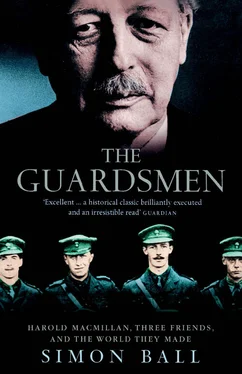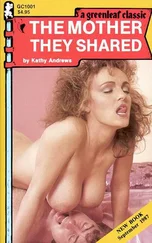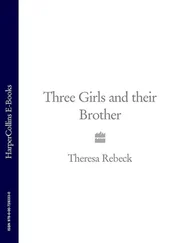Despite the handicap of a lack of any sporting prowess, Crookshank had turned himself into a highly professional infantry officer. His rapid return to duty after his entombment in 1915 was regarded by his acquaintances as particularly heroic. Nevertheless he had been humiliated by his loss of manhood. Although his physical wounds had healed surprisingly smoothly, he would never be entirely whole. He had always been a serious young man, working hard at Summer Fields, Eton, Oxford, in the Masons and in the Grenadiers. His early diaries reveal a habit of tart comment on the shortcomings of others. At home he was used to things being organized just as he liked them. Trifles such as badly cooked food or inattentive servants drew from him torrents of complaint. And far from lessening his own fine conceit of himself, his suffering increased it. He now found it even harder to admire the efforts of others. He became even more dismissive of anything that did not meet his own needs. His family had always treated him with adulation. Crookshank’s terrible wound thrust him back even further towards them. Deprived by the war of the normal reason, marriage, to leave home, he never did. At home he was never exposed to any hint of criticism. He always seemed to find it hard to understand why others did not afford him the same unstinting admiration as he received from his family. He returned from the war dissatisfied, embittered and convinced the world was unjustly determined to do him down.
Macmillan too was forced back into the bosom of his family. At Oxford he had been torn between smothering intimacies, whether of Sligger Urquhart or Ronnie Knox, and the wider society of the university. This wider world was beginning to win out by 1914 – he was becoming, albeit slowly, less of a cosseted ‘mummy’s boy’, less pompous, more worldly. His successes in the Union indicated a gift for public speaking and an ability to charm voters. His wounds, on the other hand, drastically retarded the emergence of his maturing personality. He once again became entirely dependent on his mother, immersed in his books and lacking the company of men and women his own age. As a result for the next quarter of a century he was regarded, by both friends and enemies, as impossibly pompous, self-obsessed and utterly lacking in charm. This reputation only began to change during the Second World War, six years after his mother’s death.
The contrast with Lyttelton is striking. He also had a mother to whom he remained exceptionally close. Four years of active service had, however, made Lyttelton entirely his own man. For the first time he had achieved something in a field that his father had not effortlessly dominated before him. His contact with the Guards ‘characters’ had convinced him that he too was a ‘character’. He was, for the rest of his life, self-confident and self-assured. If anything he was too convinced of his own opinion and too proud to conceal it from those he considered his inferiors – a disadvantage in a political system so full of egos that the ability to dissemble the extent of one’s own ego could be vital.
The end of the war came as a shock to many young men. As Lyttelton told his mother, ‘with youth the war is tolerable even enjoyable’. 1 Peace did not appear at all enticing. All the plans and hopes entertained in 1914 had had to be put to one side. Now, quite suddenly it seemed to them, they needed to take stock of their situation.
Macmillan, confined to a hospital bed in Belgrave Square, had the most time to think. His prospects seemed bleak. One operation had removed half the bullet lodged in his back but he needed another. He had little to do except read and look forward to visitors. With the most exciting event in his life being a trip to see Thomas Beecham conduct Mendelssohn, he envied Cranborne his sojourn in France. ‘France’ was, in his imagination, ‘wonderful’. England, in contrast, seemed suburban, bourgeois and corrupt. Macmillan responded enthusiastically to Cranborne’s tongue-in-cheek idea that ‘after the war, we really must start a League of Individuals’. ‘We will refuse to do things…and all go to Italy,’ Macmillan enthused, ‘and live in a villa in Fiesole, with Cypresses…and dear Italian wines with their ravishing names. How wonderful it would be! Let George and Beaverbrook and the rest of them reconstruct to their hearts’ content, as long as we are not obliged to live in their monstrous edifice.’ 2
Many men of a poetic temperament – one thinks of Robert Graves and his retreat to Majorca – put these principles into practice. Pragmatists like the Guardsmen did not let this reverie last for long. Before the war they had been committed to seeking conventional worldly success. Within weeks of the end of the war they were again embracing this goal. Even Macmillan found, once he was released from hospital, that maudlin thoughts of inaction or exile dissipated. ‘To a young man of twenty-four, scarred but not disfigured,’ he recalled, ‘with all the quick mental and moral recovery of which youth is capable, life at the end of 1918 seemed to offer an attractive, not to say exciting prospect.’ 3
The door that the war had opened to the military career unconsidered by any of them in 1914 was rapidly closed. The fact that none of them remained a soldier was not of their own choosing. As early as 1916 Lyttelton had applied for a permanent commission in the Grenadier Guards. 4 Crookshank too explored the possibility at the end of the war. In 1918 they both applied to remain in the regiment. They were both men in good odour with dominant figures in the Guards. But the Guards traditionalists were determined to get back to normal, purge their ranks of ‘patriots’ and guarantee the careers of regular officers. 5 By the time they reconsidered this policy, it was too late. Lyttelton and Crookshank were launched on other careers. Even Ma Jeffreys couldn’t get them back. 6
The war also ended Lyttelton’s ambition to enter the law – his contacts, so good at the time his father died, had gone stale. Not that this altered the central fact that he had to do something that made plenty of money. Even if his father’s experience of politics had not soured him on Parliament, his father’s example had shown the necessity of securing financial security before considering other avenues. In the months after the Armistice he courted Lady Moira Osborne, the daughter of the Duke of Leeds. His Grace disapproved of his daughter’s suitor on grounds of his poverty. Their engagement was made possible by Didi Lyttelton making ‘a kind of financial hara-kiri ’ to provide her son with a respectable establishment. Retreating to visit Cranborne, he considered his good fortune: ‘Perfect Hatfield though baddish morning with the thermometer at 90 degrees in the shade. Phew but happy.’ 7 Oliver and Moira Osborne were married a few months later at St Margaret’s, Westminster. 8
For a young man in need of cash the City was the obvious place to be. Many of Lyttelton’s Etonian contemporaries had already gravitated towards it. At least his army career exempted him from the jibe of his friend Geoffrey Madan, ‘Attractive Etonians who go straight on to the Stock Exchange…the raw material of the great bores.’ 9 In 1919 Lyttelton joined the firm of Brown, Shipley & Co. ‘The change,’ he remembered wryly, ‘from being a guardsman and a brigade major, under whose eye every knee stiffened, to being a clerk in the postal department was marked.’
Within a few months of his marriage Lyttelton’s career prospects looked up: he was recruited to work for a new concern, the British Metal Corporation run by Sir Cecil Budd, one of the leading figures in the metals trade. 10 When Lyttelton first crossed the threshold of BMC’s new offices in Abchurch Yard he was, however, taking a risk. It was not at all clear that BMC would have a secure future. In 1920 the metals market suffered a ‘universal collapse’. Out of the blue a relatively stable market was affected by a massive drop in prices: a ton of tin fell from £423 to £195. ‘The trade has, in fact,’ BMC’s chairman lamented, ‘passed through a succession of crises of great magnitude.’ The future looked shaky. 11 Fortunately for Lyttelton, the very newness of BMC acted as a hedge against these problems. Most of its assets were still liquid.
Читать дальше












